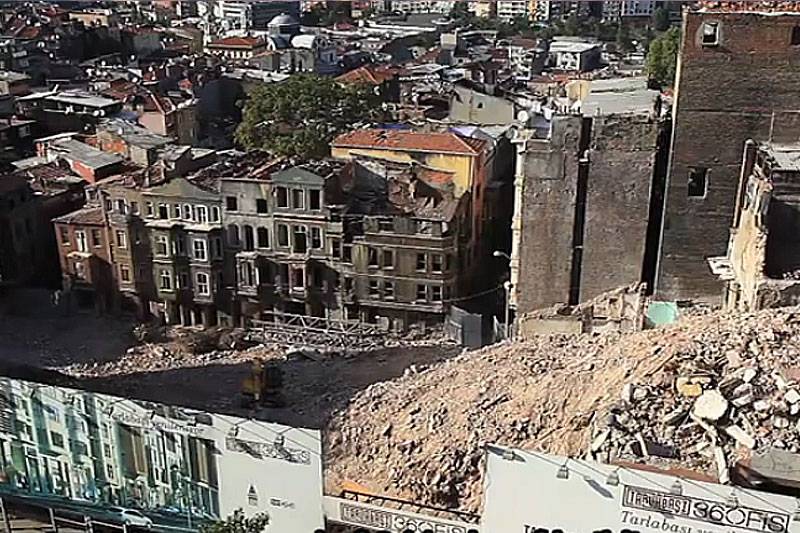
Csaba Jelinek
Films:
Agoraphobia (Imre Azem, 2013, 53’)
Sunday March 9 – 15:30
Overdrive: Istanbul in the New Millennium (Aslihan Unaldi, 2011, 75’)
Sunday March 9 – 17:30
“They are changing the whole world. But they, the rich, they cannot take that all, that cannot be!” – says an old lady whose land and house, where she lived for the past fifty years, will soon be expropriated. We are in the suburbs of Bursa, in West-Turkey, where the interview was made, during a four-day study visit involving half a dozen urbanists familiarizing with city developments of Ankara, Bursa and Istanbul. In Imre Azem’s film, Agoraphobia, we are becoming policy tourists for four days to understand complex processes – namely Turkish city renewal practices, and related social, economic and political procedures, through “site visits” and “expert meetings”. An analysis of such a study visit, in itself, and of the potential knowledge gained through it, would be quite an important task.
It is not easy to focus on these meta-questions though, since the urbanization issues and public policies in matter, are amazingly complex and interesting in themselves. For the first glance, we face a similar modernization project that has redrawn the images of socialist cities of Western Europe: 15-20- storey buildings rise in quarters where one-level buildings did earlier; suburbs are replaced with the good old panel block housing aesthetics. Participants, mainly from the Netherlands, cannot resist comparing Turkish city rehabilitation projects to those in the beginning of the century, in the Netherlands. It slowly turns out, that nothing is, as it seems: “slums” sentenced to demolition do not turn out unlivable. “Social housing”, as it appear in official documents, means condos for previous tenants with a huge mortgage in reality. So-called “city regeneration” projects are more likely to be drastic interventions of bulldozers. And despite the facts, that the volume and costs of almost half a million apartments, having been built by a state owned organization called TOKI, resembling to the housing investments in Eastern and Western Europe after the Second World War; their realization, organizational and political frameworks significantly differ from them. We cannot ignore dissimilar social contexts, demographic tendencies, political intentions and Turkey’s position in global world economics.
Although the situation presented in the film is globally known – including disappearance of public spaces, the crash of interests of market philosophy and low-status city dwellers, it is important to map local peculiarities and local terms of resistance. It is worth “co-watching” Aslihan Unaldi’s film, Overdrive that introduces housing in Istanbul and other city conflicts including consequences of global warming, matters of city (public) transport, and how such problems are embedded in historical narratives. After watching the two films, we may have a better understanding on the background of the ongoing urbanization boom in Turkey. Furthermore, we may learn a lot of the motivations of the country-wide growing oppositional movement, rooted in the protests on Taksim square, accompanied by a thorough media cover.
